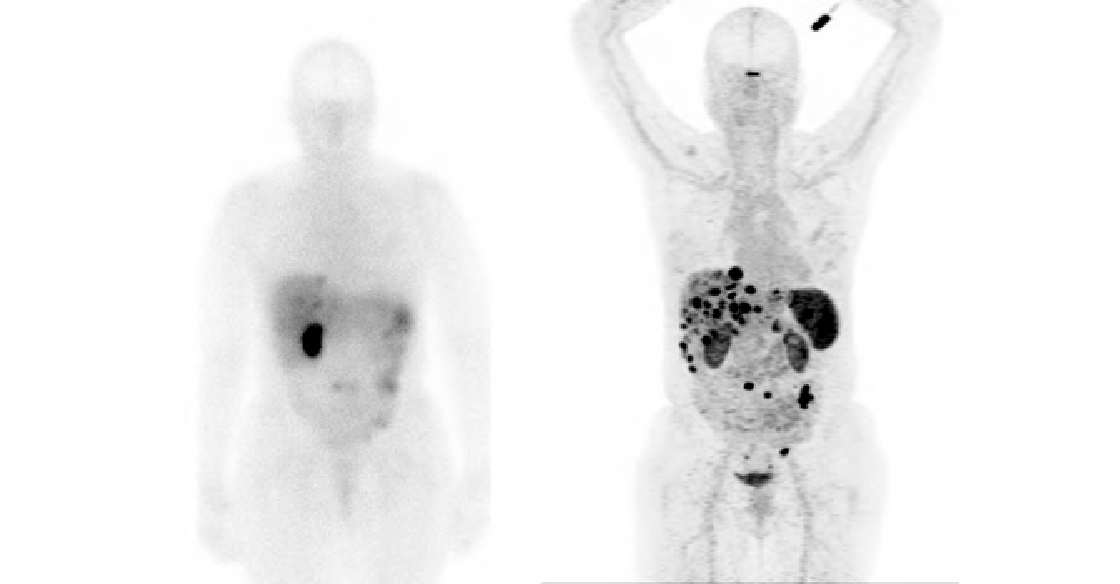
They say a picture is worth a thousand words and the comparison photo above is a testament to that. Both images are PET-CT scans of the same neuroendocrine cancer patient.
The one on the left uses the current detection methods available in our region, while the right scan uses the gallium-68 DOTATATE tracer. As you can see, the gallium-68 DOTATATE scan (right) is able to detect the neuroendocrine tumour sites with unparalleled accuracy. This accuracy means a targeted treatment plan can be immediately put in place to address the needs of the patient.
When our QEII cancer care experts, including radiologists and oncologists, have the right tools in hand, they are able to do their best work and deliver the care you and your loved ones deserve. With the right tracer – funded by generous donors in our community – our QEII teams can save more lives.
Without our donor community, major advancements – like bringing Atlantic Canada’s first gallium-68 DOTATATE tracer to the QEII – wouldn’t be possible.
Here are some of the key benefits of this detection tool and the impact your generosity will have when you support this campaign:
LOCAL ACCESS to a cancer imaging scan that patients in our region currently travel to Quebec and beyond to receive. This is critical, especially in a pandemic.
SLASHING TOTAL SCAN TIME FROM FOUR HOURS TO 20 MINUTES, reducing the time a patient must lay still, improving comfort and reducing radiation exposure.
MORE ACCURATE SCANS MEAN FASTER ANSWERS and that patients receive the most targeted treatments and avoid additional tests, such as MRIs.
OPENS DOORS TO DIAGNOSE AND TREAT PROSTATE CANCER and other cancers as gallium based PET-CT scans are increasingly being used.
LESS TIME SPENT IN HOSPITAL by reducing scan appointments from three to one, when compared to the current method.
NEW TREATMENTS AND RESEARCH OPPORTUNITIES thanks to best-in-class imaging; this can provide a lifesaving option for patients.
LESS FINANCIAL STRESS FOR PATIENTS as they no longer travel out of region to access gallium-68 DOTATATE. Some local patients have paid up to $8,000 CAD to access this scan in the U.S.